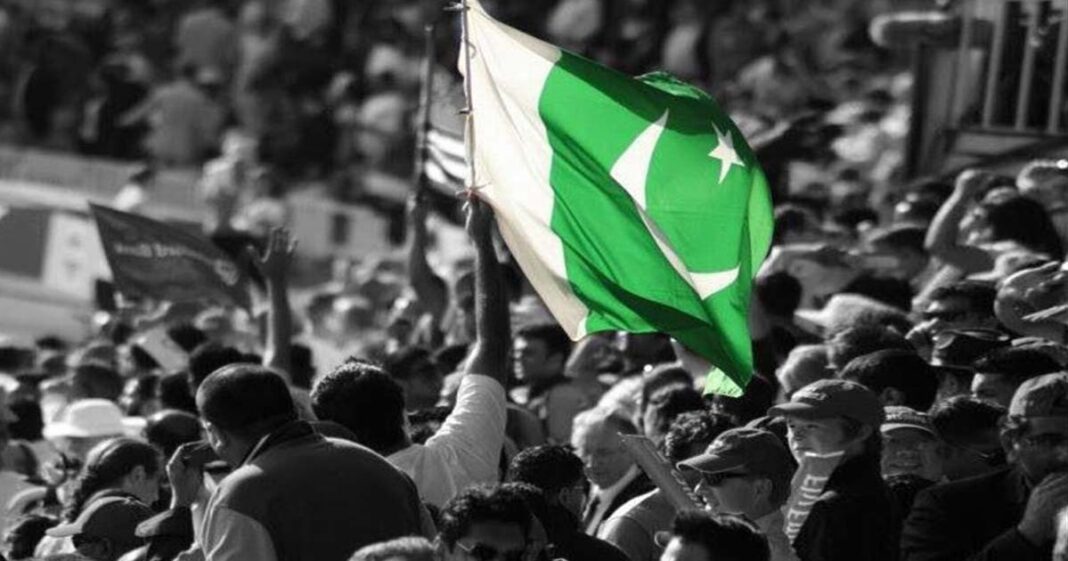By: Jalal uddin Kakar
Before I encapsulate my thoughtful observations, let us silently acknowledge that we cannot reach the right destination by walking on the wrong path. This lamentation is really heartbreaking, as the so-called Islamic Republic of Pakistan has never celebrated its heydays. It always finds itself in the throes of revolving-door democracy, a politically challenged economy, hybrid reign, military-backed politics, a mired health sector, a fragile education system, and, more humiliatingly, religious fanaticism in an extremist Pakistani society.
A report from the Economist Intelligence Unit (EIU) demoted Pakistan 11 places in the global ranking on the state of democracy and downgraded it from a “hybrid regime” to an “authoritarian regime.” As a global parameter, each country is classified into one of four types of regime: full democracy, flawed democracy, hybrid regime, or authoritarian regime. A case in point is Pakistan, which has suffered the biggest regression in the Asian region, with its score falling to 3.25, triggering a downgrade from ‘hybrid regime’ to ‘authoritarian regime’ and a decline of 11 places in the global ranking. One piece of good news is that we are living in an “age of conflicts” where democracy all over the world is declining, with over 35 years of international advances in democracy having been wiped out in the last decade. The report found there are more “closed autocracies” than liberal democracies for the first time in over two decades, with the current “wave of autocratization” sweeping across all regions. Furthermore, it found that 72 percent of the global population (5.7 billion people) lives in autocracies—a substantial increase from 46 percent a decade ago. Sadly, the Economist Intelligence Unit conducts an annual survey of the health of democracy in 167 countries, assessing them across five measures: electoral processes and pluralism, political participation, functioning of the government in the public interest, civil liberties, and political culture. Quintessentially, its 2022 report concluded that only 8 percent of people in the world live in a ‘full democracy’, with over a third residing in an authoritarian regime, 37 percent in a flawed democracy, and 18 percent in a hybrid democracy. To cap it all, democracy dashes our hope to ameliorate Pakistan’s traumatized journey of 76 years.
What I need to say expressly is that Pakistan is mired in a politically challenged economy that, instead of supporting the nation, has brought it to the IMF’s doors, where the be-all and end-all choice is only to beg for the sake of getting limited breathing space. The matter of fact is that Pakistan has no structural economic policies to boost its economy substantially, as everyone is cognizant of the dissatisfying news that Pakistan’s total debt and liabilities have peaked at Rs 81.2 trillion, a figure that grew at a faster pace of over 27% during the past year. To put things in perspective, one can plainly argue that we must not beg for the IMF’s assistance all the time to remedy the economic downturn. This is a one-step forward, two-steps back approach. In any case, an IMF program is necessary but not sufficient for the country to achieve economic recovery and embark on a path of growth. A comprehensive set of home-grown structural reforms is needed for Pakistan to escape from the vicious cycle of high budget and balance-of-payments deficits.
What is more regrettable is Pakistan’s ranking among the worst-performing countries, where it stands third after Niger and Gabon. The index points out the establishment’s outsized political influence as a critical factor. What needs to be contemplated is that Pakistan has never experienced a full democracy in the sense that no Pakistani democratic government has yet completed its democratic tenure. On cue, it is not futile to urge that all state machinery provide a level playing field for a “hybrid democracy” to facilitate its beneficiaries. To dramatize it more plainly, I will expound that every Democratic Party was made to confess to the military line to come into power.
There are many unknowns going forward. What is not in doubt is that the government must strikingly go for quick-fix solutions and structural reforms in all outdated and mouth-eaten sectors. We mustn’t extinguish the flame of hope and must wait for a better time to come.
The writer is a student of public administration at Quaid-e-Azam University, Islamabad. He can be reached at [email protected]








